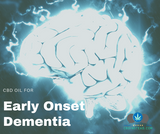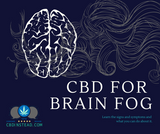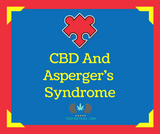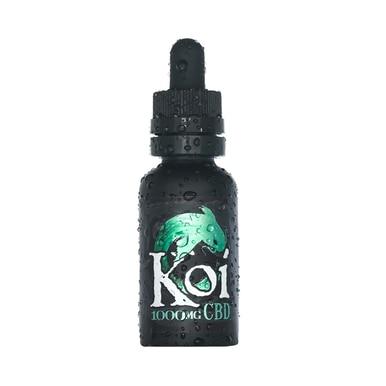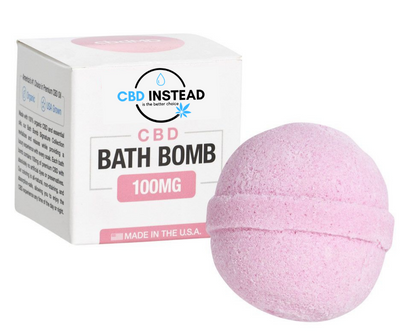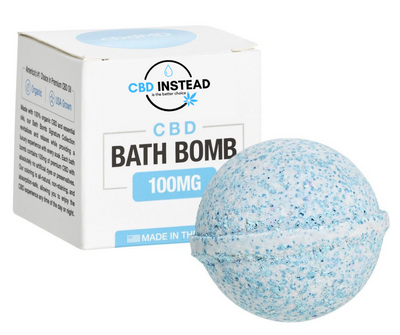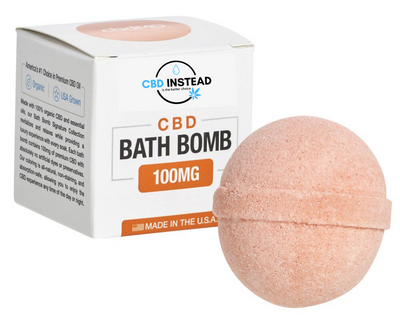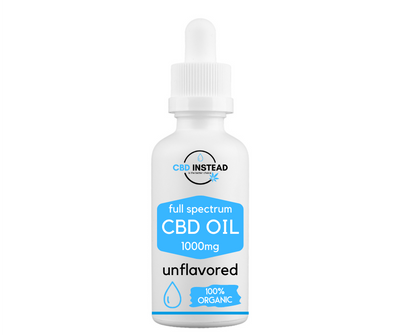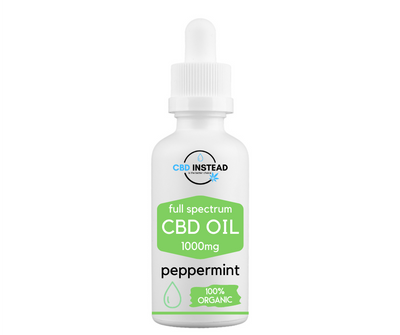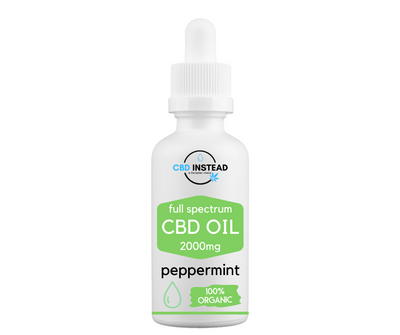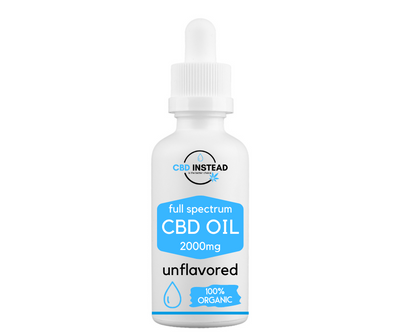People are switching to CBD instead of their prescribed pharmaceuticals. There are several reasons that medical cannabis is more attractive to those suffering from depression like a shorter list of side effects and feeling like it actually works. A study published this month just added another reason to make the switch, and it’s because CBD may be able to work faster than your average pharmaceutical.
Cannabidiol (CBD) may be a valid treatment for depression because of its ability to interact with the brain chemistry involved with the disorder. It also has shown to be able to help with many of the symptoms like anxiety, pain, and fatigue. Current studies believe that inflammation may also be a cause of depression, which cannabidiol has shown it can help reduce. The side effects of CBD are rare and less severe than those of anti-depressants, and it might be able to work faster than commonly prescribed pharmaceuticals.

Depression In America
Depression is, unfortunately, a prevalent mental illness affecting an estimated 16.2 million American adults. It’s an illness that, even though it is rampant in our society, many still don’t understand it. Some see it as a choice, as being lazy, or just feeling sad. While those who suffer in the darkness feel alone and hopeless just wishing for the misery to come to an end in any way it can.
Do You Have Depression?
Not everyone who has depression knows it. If you notice that you have a handful of these symptoms, you should go and see a doctor for a clinical diagnosis. This illness can be deadly, and you don’t want to fall prey to the consuming darkness before it’s too late.
- Persistent sadness, emptiness, or anxiety
- Pessimism and hopelessness
- Loss of interest in things that used to bring you joy
- Low energy or fatigue
- Having a hard time making decisions or concentrating
- Oversleeping or having insomnia
- Overactive or low appetite
- Thoughts of suicide
- Irritability or restlessness
- Headaches, gastrointestinal issues, or pain that doesn’t respond to treatment
The Issue With Pharmaceuticals
We aren’t going to knock all pharmaceuticals; some patients find that they are the only thing that works. And if you have found something that makes you feel happy and healthy, then good for you. Congratulations on your success toward recovery. Unfortunately, many people on anti-depressants don’t feel this way.
Side Effects
Isn’t it odd how one of the side effects to common anti-depressants is suicidal thoughts? That is one of the main things we are trying to stay away from when it comes to depression. Other side effects like weight gain, sexual dysfunction, insomnia, anxiety, agitation, dizziness, nausea, and the possibility of overdosing causing serotonin syndrome can make the medication almost as bad as the illness.
The Wait Time
One of the most aggravating things that people with depression have to endure besides the sometimes horrid side-effects is the wait time to find out if the pills they are taking will even work. Some anti-depressants can take up to two months to begin working. Scientists are still unsure as to why it takes so long for anti-depressants to work, but there is speculation that these drugs could be reducing inflammation in the brain. Regardless of the reason, this wait time is something that some people with depression can’t afford which is why some people are trying CBD instead.
What is CBD
Cannabidiol is a chemical found in the cannabis plant. It can be found in recreational cannabis as well as in the industrial hemp plant. It is one of the most abundant cannabinoids found in the cannabis plant alongside the ever-so-famous chemical THC.
The main difference between THC and CBD is how it interacts with your brain. While both chemicals have long lists of healing benefits, CBD doesn’t get you high. This is because THC can form a strong bond to the cannabinoid receptors in your brain whereas CBD’s bond is almost nonexistent. CBD can still help with healing by indirectly interacting with your body’s endocannabinoid system.
Endocannabinoid System
The reason your body functions so well is because of your endocannabinoid system. If you get sick, you get a fever, and your body fights off the nasty virus inside so you can get better. If you get a paper cut, the endocannabinoid system is the reason you don’t bleed out for eternity. This system in your body is in charge of homeostasis and is effected when cannabidiol interacts with the cannabinoid receptors and endocannabinoids.
Cannabinoid Receptors
You have cannabinoid receptors all over your body. You need these receptors for endocannabinoids to have something to bind to. Each category of cannabinoid receptors plays their own role in keeping your body functioning correctly.
CB1
The CB1 cannabinoid receptors are mainly located in your brain but are found throughout your body. Their primary role is to help mediate neurological functions like appetite, mood, sensitivity to pain, and sleep.
CB2
The CB2 receptors are more spread out throughout your body and have the job of helping with immune functions. With the help of endocannabinoids, this receptor can help control how many attacking immune cells are sent out to an affected area.
Endocannabinoids
Cannabidiol is such an interesting medicine because instead of getting its job done by directly binding to receptors, it elevates and enhances endocannabinoids instead. These endocannabinoids act like keys and bind to their respective cannabinoid receptors.
Fun fact: The reason that THC is such a potent chemical is that it is almost identical to the endocannabinoid anandamide which grants it access to bind directly to the CB1 receptor.
Anandamide
Anandamide is the endocannabinoid that binds to the CB1 receptor. Endocannabinoids travel backward through a process called retrograde signaling. So what anandamide does is it travels to the cell sending an excited transmission that, for instance, make you feel pain, and they calm down that response. This is how anandamide is able to help with the neurological mediation of the CB1 receptor.
2-AG
2-Arachidonoylglycerol (2-AG) is the endocannabinoid that mostly interacts with the CB2 receptor. While traveling backward, this endocannabinoid can tell the CB2 receptor to stop sending out so many attack cells which is why when manipulated can be used to combat inflammation.

How Can CBD Help With Depression?
Just this month a new study was released that is exciting for the mental health world. Researchers studied rodent models given CBD and found that in just thirty minutes the mice were showing positive effects.
What they noticed is that cannabidiol elevated the levels of BDNF in the medial prefrontal cortex and hippocampus, which is like a brain fertilizer that helps cells grow and function better. A damaged medial prefrontal cortex could be behind the negative thinking associated with depression with common emotions being shame, regret, embarrassment, and guilt. Studies have also shown that having a damaged hippocampus can lead to depression, making this quick elevation of BDNF an exciting discovery.
Hemp oil may be able to do more than help the brain grow back to functionality. CBD has shown in studies that it can also help with many symptoms associated with depression while lacking the side effects that could make it worse.
Symptoms Of Depression CBD May Help With
Anxiety
Scientists are still unsure which came first, anxiety or depression. While anxiety is a common symptom, they have also discovered that extreme stress and trauma may also cause depression by creating inflammation in the brain.
Studies have shown that cannabidiol may be able to help with anxiety because of its interaction with anandamide. When anandamide is elevated, it can calm down the neurons that are sending panic transmissions across your brain which can, in turn, reduce anxiety.
Pain
Physical pain is a common symptom of depression because both pain and depression share a neural pathway. Scientists believe that only treating pain or depression and not treating the other will prevent you from a full recovery. If your pain isn’t responding to treatment, you can try taking CBD instead. By enhancing anandamide, cannabidiol has the potential to reduce your sensitivity to pain granting relief.
Fatigue
Some doctors believe that depression becomes harder to treat when the fatigue isn’t treated. Even when medication is taken to help with the chemical imbalance that causes depression, the fatigue can make the patients depressed yet again. Cannabidiol has shown in studies that at a smaller dose, it works as a wake-promoting agent which may be able to help with the fatigue.
Weight Gain
Many people with depression may find themselves overeating and gaining weight. Which creates a rough cycle of having low self-esteem making the depression worse. While exercise and a healthy diet are an absolute must to get your weight under control, CBD may be able to make the process easier.
When you eat food, your body stores energy in white fat cells. When your body needs that energy like during a workout, it will brown the fat which makes it able to be burned into energy. CBD has shown ins studies that it can enhance this fat browning process, making it easier to get rid of stubborn fat.
Insomnia
Some people with depression sleep too much, some people can’t sleep at all, and then there are those who can sleep their day away but at night are staring up at their ceiling wondering where that desire to slumber has fled.
If you feel like you aren’t getting a restful sleep and you could sleep for a full six to eight hours and you still feel exhausted, studies have shown that cannabidiol may be able to help with achieving the REM process that puts you into a deeper more restful sleep giving you more energy throughout the day. If actually getting to sleep is the issue, studies have suggested that a high dose of CBD has helped insomniacs get to sleep.
Taking CBD For Depression
You may be wondering how to take CBD for depression, and the answer is however you want! But you are probably here because you need something to make you feel better fast. Like, yesterday. Vapes, tinctures, oral spray, and candies all have the potential to work quickly. If you are okay with something taking a little bit longer to kick in but lasts a bit longer, then taking the pills or eating edibles might be right for you.

Talk To Your Doctor
It is crucial that you involved your doctor in this process of trying CBD for your depression. Quitting CBD cold turkey hasn’t shown to have any drastic effects, but stopping anti-depressants without the help of a professional can prove to be painful and sometimes even deadly. Your doctor will know how to wean you off of your medication and can monitor you through the process to learn if this method of medicine is right for you.
Have you used cannabidiol or any hemp product for your depression? Tell us about it in the comment section!












